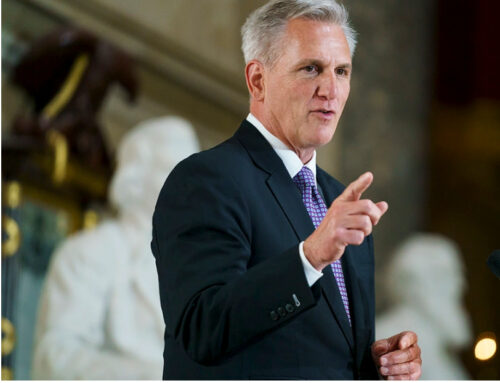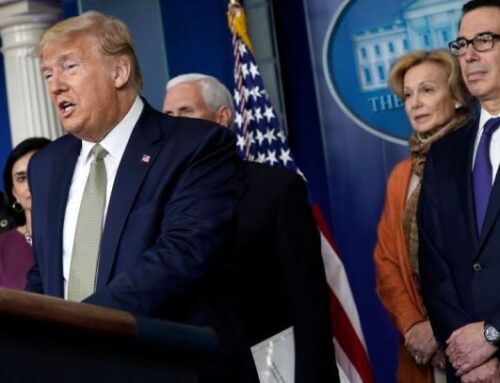From a tax philosophy perspective, the 2024 election sets the course of the country’s taxation for the next decade.
2025 is a big year for tax reform. At the end of the year, barring any tax reform legislation, The Tax Cuts and Jobs Act (TCJA) of 2017 will expire as if it never existed, except for the lower corporate rates of 21%. The TCJA’s lower corporate rate is permanent until changed by a future Congress. In this scenario, Washington does not agree on tax reform next year, and we would return to the 2017 tax code with the limits indexed for inflation.
It is a pivotal year in proving whether the tax theory of tax cuts provides outsized GDP growth and higher revenues, therefore “paying for themselves,” or whether the country needs to rethink its current tax posture to reflect demographic and wealth distribution changes. What is exciting about 2025 is that every voter can weigh in on this issue in November with their vote.
The two parties have hugely different visions for the tax code. Republicans suggest we should double down on the TCJA, while Democrats want the code to more closely track the country’s wealth disparities. This stark contrast underscores the significance of the election’s potential impact on tax reform and wealth management.
Every financial advisor should pay close attention to this election. The potential uncertainty of the outcome underscores the need for preparedness and vigilance. Failure to do so is professional negligence. The election will have a dramatic impact on money management moving forward.
If the Republicans keep the House and take back the White House and Senate, they want to extend the TCJA pretty much as is. Numerous GOP members believe that the economic upheaval of COVID-19 tainted the real impact of the tax changes, and it simply needs more time to prove its ability to grow GDP and, therefore, be a win-win for taxpayers and the economy.
Should the Republicans have this opportunity, they will have to deal with the very real economic impacts of the last 9 years. The cost of the TCJA has been sizably higher, nor has it yielded the expected GDP growth as initially predicted. COVID and the subsequent unprecedented economic upheaval we are still dealing with put a big asterisk on these results. Nonetheless, this is the environment the Republicans must deal with when considering extending the TCJA.
If the Democrats win back the House and keep the White House and Senate, they’ve promised a 180-degree shift in taxation. Basically, it would be a return of the Build Back Better tax increases discussed in 2021. They hesitated to pull the trigger during COVID, but expecting them to be as timid in 2025 is naive.
President Biden outlined his expectations* of tax reform in this scenario:
- A 25% minimum tax on “billionaires”, taxing unrealized gains
- Increase the highest marginal rate to 39.6%
- Increase Net Investment Income & Medicare taxes to 5% for higher-income earners
- Equalizing capital gains & marginal rates for those with earnings above $1MM, yielding a 44.6% tax rate
- IRA/401K maximum account limits and forced withdrawals above a set amount
- Curtail the use of certain trust and business structures used to pass wealth
- Increase the corporate tax rate to 28% (minimum tax 21%)
- All employees earning >$1MM subject to 162(m) executive compensation limit
- Carried interest rate increase
- Eliminate oil & gas subsidies
- Increase in the stock buyback tax to 4%
These potential outcomes underscore the urgency for financial advisors to understand and prepare for the implications on client money management.
The political reality in 2024 is that neither scenario outlined above is the most likely outcome of the election. What is more likely is split power between the parties. Therefore, a negotiated tax reform effort is the result, the direction of which is hard to predict. Often shared with audiences is the political axiom that once tax reform is on the table, everything is on the table, making predictions difficult.
We can make some assumptions going in. If we assume the Democrats’ primary goal is to increase the progressivity of the tax code, and the expiration of the TCJA accomplishes this, then expiration is not an unsatisfactory outcome for the Democrats. Politically speaking, they could blame the Republicans for it. The speech writes itself. “Don’t blame us Democrats for the tax increase. The Republicans wrote the bill in 2017. They could have made the changes permanent in 2017 but chose not to.” This ignores the legal constraints on the reconciliation process used to pass the TCJA, which hand-tied the Republicans. But, as often said, do not let the facts get in the way of a good political line.
If the above is correct, and in a split-power negotiation, there is simply an imbalance in motivation setting up in 2025, where the Democrats can get 80% of what they want by not doing anything but making perfunctory efforts at negotiating. The only complication for the Democrats is President Biden’s pledge not to increase taxes on people earning less than $400,000. This may well set the table for negotiations. For those earning less than $400,000, the TCJA remains in place, and it expires for those earning more than $400,000.
One more complication must be factored in: the Supreme Court’s decision this month on the constitutionality of taxing unrealized gains and income. If the court finds this form of taxation unconstitutional, this analysis is more realistic. If they find it constitutional, it emboldens Democrats to push the tax code in this direction in the negotiations.
Add “tax philosophy” to your list of what you vote on in November. This election will likely set the course for taxation in the next decade.
*Not meant as a complete review of the evolving Biden tax plan
______
Jeff still has availability for client and advisor events in July, August, and a few dates in October for pre-election events. His November, December, and 2025 calendars are now open for post-election events where he can give advisors and their clients insights into the new political landscape with enormous implications on tax policy, retirement planning, and investments. Please email Jeff at Jeff.bush@TheWashingtonUpdate.com or call him at 866-230-1269 for availability.
Jeff Bush, Partner, The Washington Update, speaks regularly on legislative and regulatory developments and trends affecting investment, insurance, and retirement products. He may be reached at www.TheWashingtonUpdate.com.
The author of this paper is not providing legal or tax advice as to the matters discussed herein. The discussion herein is general in nature and is provided for informational purposes only. There is no guarantee as to its accuracy or completeness. It is not intended as legal or tax advice, and individuals may not rely upon it (including for purposes of avoiding tax penalties imposed by the IRS or state and local tax authorities). Individuals should consult their own legal and tax counsel as to matters discussed herein and before entering into any estate planning, trust, investment, retirement, or insurance arrangement.














